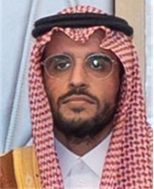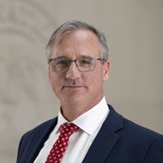Thursday, Apr 24, 2025 | 01:00 PM - 02:00 PM
Location: Cedar Hall HQ1-1-660
 |
OVERVIEW
The Data for Decisions Fund—or D4D—is the IMF’s main multi-partner vehicle for providing statistics training and technical assistance to developing economies, especially low- and lower middle-income countries as well as fragile and conflict-affected states. The 2025 Spring Meetings will mark the launch of phase II of the fund, with potentially additional contributions. This high-level event, featuring IMF’s Deputy Managing Director Bo Li, will showcase the success and impact of capacity development under D4D phase I and highlight the new areas and innovative approaches to be introduced under phase II. Speakers will include high-level representatives of the beneficiary and donor countries.
OPENING REMARKS
|
||
|
Bo Li |
||
Mr. Bo Li assumed the role of Deputy Managing Director at the IMF on August 23, 2021. He is responsible for the IMF’s work on about 90 countries as well as on a wide range of policy issues. Before joining the IMF, Mr. Li worked for many years at the People’s Bank of China, most recently as Deputy Governor. He earlier headed the Monetary Policy, Monetary Policy II, and Legal and Regulation Departments, where he played an important role in the reform of state-owned banks, the drafting of China’s anti-money-laundering law, the internationalization of the renminbi, and the establishment of China’s macroprudential policy framework. Outside of the PBoC, Mr. Li served as Vice Mayor of Chongqing—China’s largest municipality, with a population of over 30 million—where he oversaw the city’s financial-sector development, international trade, and foreign direct investment. Mr. Li was also Vice Chairman of the All-China Federation of Returned Overseas Chinese. He started his career at the New York law firm of Davis Polk & Wardwell, where he was a practicing attorney for five years. Mr. Li holds a Ph.D. from Stanford University and an M.A. from Boston University, both in economics, as well as a J.D., magna cum laude, from Harvard Law School. He received his undergraduate education from Renmin University of China in Beijing.
SPEAKERS
|
||
|
Ahsan H. Mansur |
||
Mr. Mansur assumed office as the 13th Governor of Bangladesh Bank on August 14, 2024. He began his career in 1976 as a Lecturer in Economics at the University of Dhaka. Following this, he pursued further studies in Canada, earning a Master's degree from McMaster University and a PhD in Economics from the University of Western Ontario in 1982. In 1981, Mr. Mansur joined the International Monetary Fund (IMF) through its Economist Programme. Throughout his extensive career at the IMF, he contributed to both Area and Functional departments, including those focusing on the Middle East, Central Asia, and Asia, in addition to the Fiscal Affairs and Policy Review and Development departments. He held significant positions such as Senior Resident Representative to Pakistan, Fiscal Advisor to the Minister of Finance of the Government of Bangladesh, and Division Chief of the Gulf Cooperation Council (GCC) Division. He also served as the Mission Chief for Saudi Arabia, Kuwait, and Oman. After his tenure at the IMF, Mr. Mansur founded an institute for policy analysis and became the founding Director and Executive Director of the Policy Research Institute (PRI) of Bangladesh. Additionally, from 2017 to 2023, he served as a Director and later as the Chairman of BRAC Bank PLC.
|
||
|
Rath Sovannorak |
||
Mr. Rath Sovannorak joined the NBC in 1988 and has held a variety of positions such as Division Chief of the Exchange Management Department, Branch Manager of NBC’s Kampong Thom Branch, Director of Banking Supervision Department, and Director General of Banking Supervision. His thirty five-year service has been committed to the banking system reform in Cambodia. In these last few years, he has actively participated in various conferences and seminars in the country and abroad regarding the regulatory framework in banking and microfinance supervision and economic and monetary policies. Currently, he is also a member of committees within the National Bank of Cambodia such as Financial Stability Committee, Monetary Policy Committee, and the Banking Supervision Committee as well as a Chairman of Credit Bureau Cambodia, a Member of Non-Bank Financial Services Authority, and a member of different policy-driven committees on a national level. H.E. Rath Sovannorak holds a master’s degree in financial economics from the University of London, England, and a master’s degree in development economics from the Williams College, MA, USA.
 |
||
Ran Lin |
||
Ms. Ran Lin is the Deputy Director-General of the International Department at the People’s Bank of China (PBC) with a focus on the IMF, G20 and Sovereign Debt Restructuring. She obtained a bachelor's degree in international finance at Xiamen University, China in 1999 and then won a master's degree in economics and finance from the Graduate School of the PBC in 2002. Immediately after the graduation, she joined the PBC and largely worked for the International Department and served as an advisor to the ED for China at the International Monetary Fund during 2008-2010.
|
||
|
Kentaro Ogata |
||
Mr. Kentaro Ogata, Deputy Vice Minister of Finance for International Affairs, also Chair of G7 Digital Payment Expert Group, assumed the current position in July 2023 after serving as Deputy Vice Minister for International Affairs (2021-2023), Director of Planning and Administration (2020) and Director of International Organizations (2018-2020, in charge of IMF matters as well as the G20 Finance Track under the Japanese presidency) of the International Bureau. As finance deputy’s deputy (acting), he oversees G7 and G20 matters. Prior to these, he assumed several director positions in the Tax Bureau (2014-2017, in charge of international tax policy) as well as in the International Bureau (in charge of foreign exchange markets and development issues). He worked twice at the IMF (Fiscal Affairs Department) from 2001 to 2005 and from 2010 to 2013, where he served as fiscal economist in country teams (Timor-Leste, Kosovo and Kyrgyz Republic), participated in technical assistance missions (Cambodia, Estonia, Mexico and Slovakia; and Moldova as mission chief). He has extensive experience in international tax issues, covering domestic legislations, bilateral tax treaties and multilateral discussions, particularly on OECD’s base erosion and profit shifting (BEPS) project. He holds a Bachelor of Law (LLB) from the University of Tokyo (1992) and an MBA from University of Maryland (1996).
  |
||
|
Jiyoung Choi |
||
Ms. Jiyoung Choi assumed the current position in July 2024. Prior to this role, she served as the Head of the Planning and Management Team at the Secretariat of the National Economic Advisory Council (April 2023 - July 2024). Her previous roles within MOEF include Director positions in the International Economic Policy Division (2021-2022), International Economic Cooperation Division (2020-2021), Development Finance Cooperation Division (2019-2020), International Monetary System Division (2018-2019), International Financial Institutions Division (2017-2018), and Trade Policy Coordination Division (2016-2017). She also headed the International Monetary Fund Team (2015-2016). Earlier in her career, she served as Principal Research Economist at the African Development Bank (2010-2012) and as Executive Director of the G20 Research Department at the Korea Institute for International Economic Policy (2013-2015). She holds a master's in public administration from Harvard University (2009), an MA in Public Administration from Seoul National University (2000), and a BA in Sociology from Seoul National University (1998). She is a Chartered Financial Analyst (CFA), Financial Risk Manager (FRM), and a Certified Public Accountant (CPA).
  |
||
Abdullah bin Abdulrahman Bin Zaraah
|
||
Mr. Abdullah bin Abdulrahman Bin Zaraah is the Assistant Minister of Finance for Macro-Financial Policies and International Relations. He has previously held several positions, including Credit Team Leader at Saudi Industrial Development Fund (SIDF), Investment Team Lead at Riyad Capital, in addition to serving as General Manager for Industrial Development at the General Authority for Military Industries, and as an Advisor at the Public Investment Fund (PIF) for the establishment of the Saudi Arabian Military Industries Company. He is also a member of several boards and committees, including the Center for National Health Insurance and the Saudi Electricity Regulatory Authority. He holds the Chartered Financial Analyst (CFA) certification, as well as a master's degree in finance from Saint Mary's University in Canada, and a bachelor's degree in industrial engineering from King Fahd University of Petroleum and Minerals in Saudi Arabia.
  |
||
|
Michael Manz
|
||
Dr. Michael Manz is Assistant State Secretary and head of the Financial System & Financial Markets division at the Swiss State Secretariat of International Finance (SIF). The responsibilities of his division include consulting the government and preparing laws and ordinances in the field of financial market regulation, financial stability, financial innovation, combating money laundering and terrorism financing, and international monetary assistance. He represents Switzerland in various international workstreams and is in charge of supporting the membership of the Swiss Ministry of Finance in the International Monetary Fund, the Financial Stability Board and the Financial Action Task Force.
|
||
|
Denny Kalyalya |
||
Mr. Denny Kalyalya is the current Governor of the Bank of Zambia and Chairperson of the Board of Directors of the Bank since October 2021. He is also the Co-Chair of the Financial Stability Board Regional Consultative Group for Sub-Saharan Africa (FSB-RCG SSA), and the immediate past Chairperson of the Association of African Central Banks (AACB) from August 2023 – August 2024. He also served as the Vice Chairperson of the AACB from August 2022 to August 2023. Prior to that, he was Chairperson of the Southern African Region of the AACB. Mr. Kalyalya is a Member of the Board of Directors of the African Export-Import Bank (Afreximbank) since 2019. He served as an Independent Co-Chair of IDA 20 Replenishment and previously served as a Borrower Representative for the IDA 18 and IDA 19 replenishments. Mr. Kalyalya also served as Governor and Chairperson of the Board of Directors of the Bank of Zambia from February 2015 to August 2020. Prior to that, he served as Executive Director (2012 – 2014) and Alternate Executive Director (2010 -2012) for Africa Group One Constituency at the WBG, and Deputy Governor – Operations at the Bank of Zambia. Further, he served in other senior positions, including being Special Appointee at the IMF, Director of Economics at Bank of Zambia, and Head of the Economics Department as well as Assistant Dean, Post Graduate Studies, School of Humanities and Social Sciences at the University of Zambia. Mr. Kalyalya holds a PhD in Economics and a Master of Arts in Economics from the University of Massachusetts at Amherst in USA as well as a Master of Arts and Bachelor of Arts in Economics from the University of Zambia.
  |
||
|
Bert Kroese |
||
Before joining the Fund, Mr. Bert Kroese worked for 25 years at Statistics Netherlands. He served in various expert, management, and director roles in the fields of methodology and economic statistics. He served as Deputy Director-General and CIO for IT and Innovation from 2013 to 2022, and as acting Director General in 2014 and 2020. Nationally and internationally, Mr. Kroese has been active in the fields of innovation and environmental-economic statistics. He chaired the UN Committee of Experts on Environmental-Economic Accounting (UNCEEA) for seven years, and co-chaired the Executive Board of the High-Level Group for Modernization of Official Statistics (UNECE). In the context of the European Statistical System, he has been co-chair and deputy chair of several innovation-related taskforces. He was also a member of the strategy team of the Dutch National Artificial Intelligence Coalition. Mr. Kroese holds a Ph.D. (honors) in mathematical statistics from the University of Groningen.
MODERATOR
|
||
|
Franck Bousquet |
||
Mr. Franck Bousquet is Deputy Director of the IMF’s Institute for Capacity Development, overseeing the IMF’s global partnerships. Previously, he was the deputy director coordinating the Fund’s engagement with Fragile and Conflict-affected States (FCS). Notably, Franck led the preparation of the IMF FCS Strategy approved by the Board in March 2022. Before joining the IMF, he was the senior director of the World Bank’s Fragility, Conflict and Violence (FCV) Group where he led the development of the Bank’s first FCV Strategy. In this role, he mobilized expertise and supported teams across the Bank to design and implement programs in collaboration with humanitarian-development-peace partners, including the implementation of the $25 billion International Development Association financing package for the poorest countries. Franck has several years of leadership experience in low-income and middle- income countries in Africa and the Middle East, including significant work on resilience and reconstruction issues such as the World Bank’s response to the Syrian refugee crisis. He led an international effort, through the set-up of the Global Concessional Financing Facility, providing for the first-time concessional financing to middle-income countries facing refugee crises. Franck previously held roles in the public and private sectors focused on sustainable development, finance and capital markets. He holds an MBA with a specialization in finance from Columbia Business School and a graduate diploma in engineering from France.